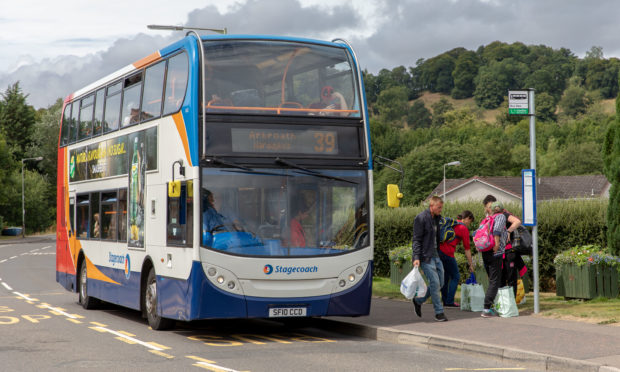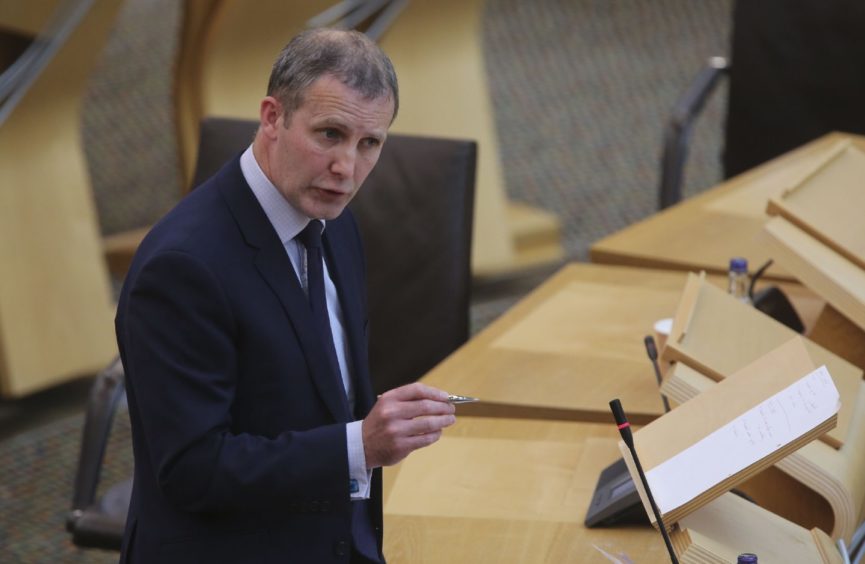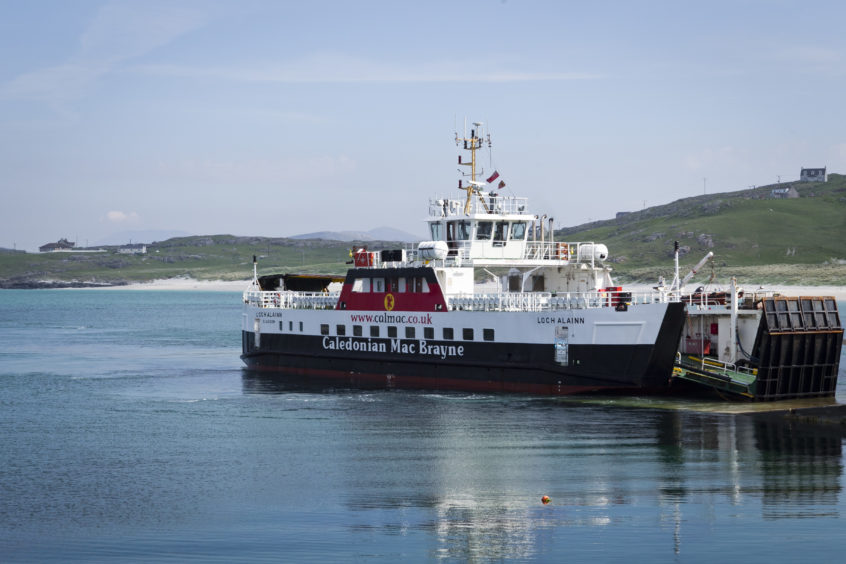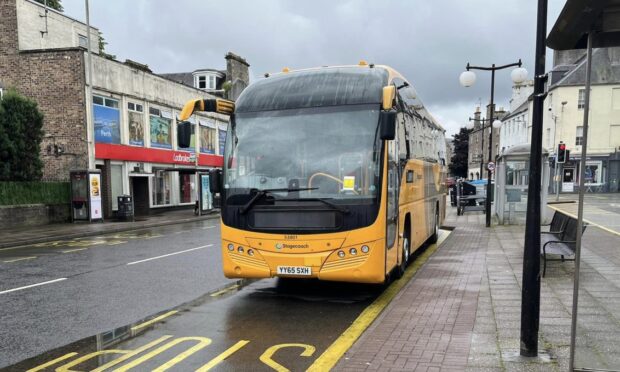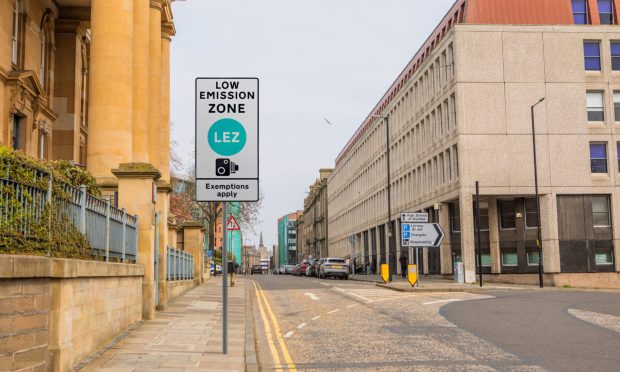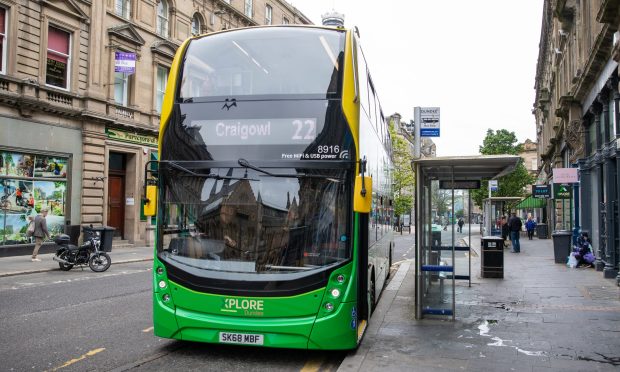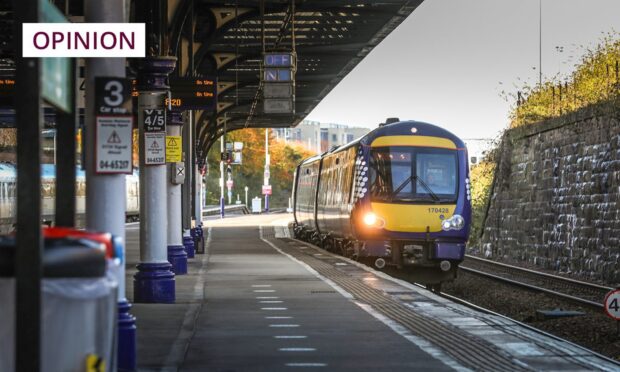Face masks will be required for passengers and staff on Scotland’s buses, trains and some ferries as the coronavirus lockdown is eased.
The new rule was announced by the Scottish Government as part of a “transition plan” to restart a public transport network that has almost ground to a halt in recent weeks.
The pandemic has led to demand for services falling by up to 95% against the pre-virus levels and ministers want to try to begin rebuilding confidence in the sector.
But with physical distancing measures to remain in place for the first three phases of the Scottish Government’s “route map” out of lockdown, capacity on the network is expected to be at just between 10% and 25% of normal levels for the next few weeks.
On trains it will be down to 12% of previous use, while on ferries it could range from 15% to 20% and cause a “significant impact to timetables”.
Transport Secretary Michael Matheson said the government was working to increase the number of services on many transport routes, and he announced that a £10 million fund to create new cycle lanes and expanded walkways would be increased to £30m.
However, to ease pressure on the scaled-back services, he urged workers to remain at home if possible, or to try to avoid peak periods where travel could not be avoided.
Businesses have also been told to be flexible about staff working times.
Stressing the “need for personal responsibility”, Mr Matheson reminded passengers to retain a physical distance wherever possible, wash hands regularly, and he said that “people should, and are expected to, wear face coverings as an additional measure”.
If you are using public transport please wear a face covering as a consideration to staff and fellow passengers. https://t.co/SMyAYW3GVG
— Michael Matheson MSP (@MathesonMichael) May 26, 2020
Mr Matheson said: “Today, I am urging employers, operators and the public to embrace these changes and help us all adapt to a new environment which has flexible and remote working at its core, for the immediate future at least, flattens peak travel demand and has a strong focus on active travel.”
However, Labour’s Colin Smyth suggested the plan was “half-baked” and questioned how the measures would be enforced.
He added: “It is not good enough for the SNP government to hope that company bosses will show leniency with their staff’s schedules.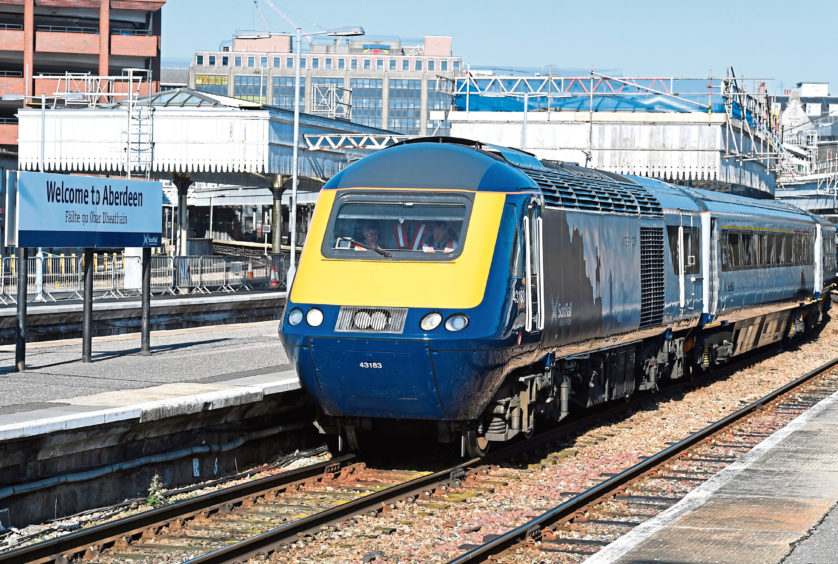
“It is not good enough to hope that transport workers will be safe because passengers have been asked to wear face coverings.
“If the government believes face coverings are necessary to stop the further spread of Covid-19, then they must explain how this will be enforced.”
The impact of social distancing rules could mean a reduction to only 18% of normal passenger carrying capacity across the CalMac network, and of 15% to 20% on Serco NorthLink vessels.
There could be a “significant impact on timetables given the need for longer turnarounds at some ports”, the Transport Scotland guidance stated.
Orkney’s Liberal Democrat MSP Liam McArthur said: “In terms of our ferry services, the easing of the current restrictions will have to be handled carefully.
“It will also have to be done in close collaboration with local authorities and consultation with the island communities directly affected.
“Ferry services remain a lifeline for those who live in island communities such as Orkney.
“As decisions about when and how to ease travel restrictions are taken, the safety of passengers, crew and the wider public must continue to be the overriding consideration.”
